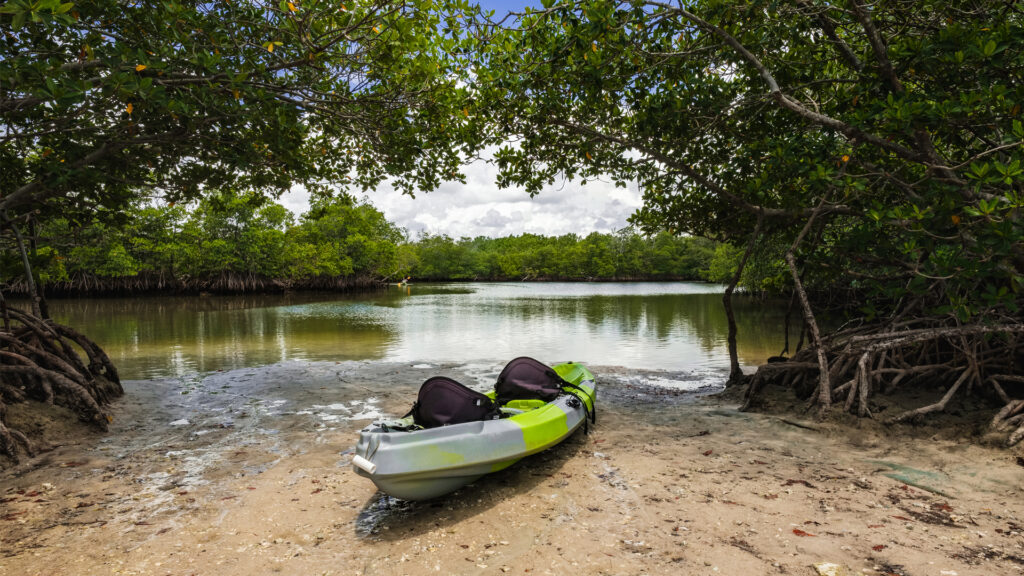By the Miami Herald Editorial Board
After the uproar created last summer by Gov. Ron DeSantis’ proposal to pave over parts of Florida’s beloved state parks with golf courses, pickleball courts and lodges, it’s good to hear that a bill has been filed in Tallahassee aiming to put a stop to any more of that park development nonsense in the future.
Sen. Gayle Harrell from Stuart has filed Senate Bill 80 — the “State Park Preservation Act” — to stop construction of sporting facilities at state parks. Harrell is a Republican; one of the most notable things about the fierce opposition to DeSantis’ idea last year is that it came from both environmentalists and from within his own party, including from Agriculture Commissioner Wilton Simpson and Chief Financial Officer Jimmy Patronis.
But her bill, which passed the Senate Environment and Natural Resources Committee unanimously last week, doesn’t go far enough to fully safeguard our parks. A group of 60 environmental groups called on Harrell and House bill sponsor Rep. John Snyder, R-Stuart, to add more specifics to the bill to tighten it.
Gil Smart, a director of Friends of the Everglades, told the Miami Herald Editorial Board that although the organizations know they can’t list every inappropriate use of the parks, the bill still should add safeguards in the form of “specific language that prohibits any proposal that is going have material impacts on the resources of the parks.”

The proposed legislation would take basic but important steps, starting with preventing the construction of development that could “cause significant harm to the resources of the state park.” That’s critical. Parks would have to prioritize “conservation-based activities, such as fishing, camping, biking, hiking, nature study and more,” which sounds like the right idea. It would also allow construction of “camping cabins with a maximum occupancy of six people.”
Florida already has plenty of golf courses and resort accommodations. What sets the state apart are its wild spaces — from the icy waters of Wakulla Springs in North Florida to the mangroves at Oleta River State Park in Miami-Dade, where the DeSantis administration wanted to build pickleball courts and cabins to the chagrin of frequent park goers. The state’s 175 parks are key to Florida’s identity — and an enormous tourist draw. They also provide affordable recreation and environmental education opportunities for Florida families.
The environmental and long-term economic benefits of preservation far outweigh the short-term gains from developing golf courses or more recreational facilities. In 2024, Florida parks attracted over 30 million visitors, with an estimated economic impact of more than $3.9 billion. These natural spaces attract all those visitors in part because they are home to a variety of animal species, including alligators, manatees and over 300 types of birds.
Florida’s state parks also play a key role in protecting the environment. They act as natural shields against rising sea levels and stronger storms. Wetlands absorb excess rainfall, while maritime forests help protect inland areas from storm surge.
During last week’s hearing, Harrell — whose district includes Jonathan Dickinson State Park in Martin County, where three golf courses were proposed under DeSantis’ initial development plan — said that “we are preserving our state parks for what they were originally intended for” and the legislation “clearly defines conservation-based public outdoor recreational uses.”
Past decisions highlight stronger protections are needed. Last June, the Florida Cabinet quietly approved the transfer of 324 acres of state forest land to a private golf course company in exchange for less valuable, isolated timberland. This pattern of undermining conservation efforts cannot continue.
While Harrell’s bill is a very good start, it needs to go the whole way. The proposal that the DeSantis administration shelved last year had big ambitions for developing our public parks: 50-room luxury lodges at Anastasia State Park in St. Johns County and Topsail Hill Preserve State Park in Walton County, a flying disc course at the Alfred B. Maclay Gardens State Park in Tallahassee, pickleball courts at Miami’s Oleta River State Park.
To combat such over-the-top proposals, lawmakers should nail down this legislation with great specificity. Florida’s unique environmental heritage is worth it.
This opinion piece was originally published by the Miami Herald, which is a media partner of The Invading Sea. Banner image: Anastasia State Park in St. Johns County, where a 50-room luxury lodge had been proposed last summer (iStock image).
Sign up for The Invading Sea newsletter by visiting here. To support The Invading Sea, click here to make a donation. If you are interested in submitting an opinion piece to The Invading Sea, email Editor Nathan Crabbe at ncrabbe@fau.edu.




Contact Senators and Representatives to encourage strengthening of the language:
https://waterkeepersflorida.good.do/SB80_2025/SB80_Sponsors/?v=72656d55&fbclid=IwY2xjawIq3HxleHRuA2FlbQIxMQABHSvA62osCtQvudiYF7NJ42OrABiOcqID3_uXldmUJDq2iV2V_wcJld9ZeA_aem_R_OnfaypNMyya6XHGWSsrg